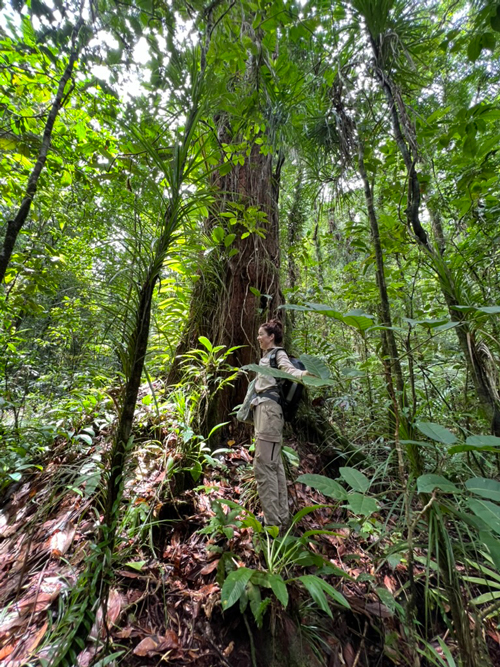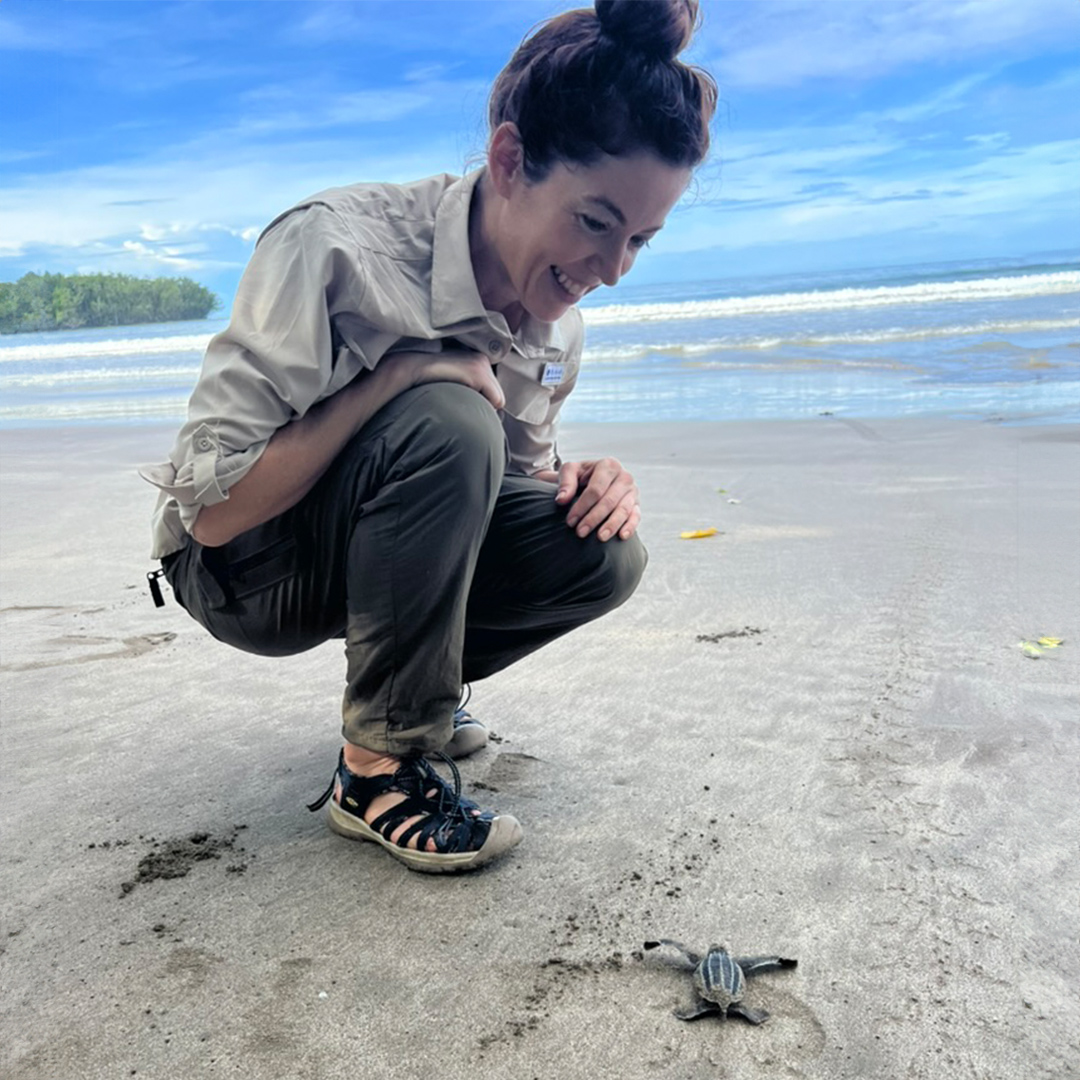
Elektra Grant, 29 October, 2024 | QUT research fellow Elektra Grant in the Solomon Islands
Research Opportunities and Conservation in the Solomon Islands
There aren't many jobs where you can rescue leatherback turtle hatchlings on your way to work. Once at work, you measure trees so large that you could easily be engulfed by the leaf litter among the buttressed roots of these forest giants.
Elektra Grant had such an opportunity while working in the pristine, old-growth forests of Zaira, a remote community in the Western Province of the Solomon Islands. This is her story.
My field trip to the Solomon Islands
Biodiversity research allows you to explore the living world. The Solomon Islands is a perfect field site due to its high biodiversity and unique socio-ecological context. These rainforests also support the livelihoods of local communities. They are home to incredible biodiversity but are constantly threatened by logging and other human pressures.
My research in the tropical rainforests of the Solomon Islands assesses the impact of land degradation on biodiversity and ecosystem services.
Our field sites are also in logged forests. After battling through the overgrown understorey, thick with vines and fire ants, I have experienced firsthand how human disturbance alters the forest ecosystem.
The research project I'm involved in works with communities to test ways to restore forests damaged by logging. We do this in a way that supports the future of the local communities that depend on them.
During fieldwork, I have conducted biodiversity and vegetation surveys, gathered soil samples, and worked closely with local communities. Studying how elements of the ecosystem interact, adapt, and respond to change is crucial for conservation efforts and the livelihoods that depend on them.


Advice for future research students
If you're thinking about a career in science or embark on a PhD journey, my advice would be to be patient and persistent. Scientific research takes time and effort, especially in biodiversity and ecology. From unexpected field conditions such as endless torrential rain and complex data analysis inevitable with messy field data to working in a remote foreign country that is culturally divergent, the challenges multiply!
Fieldwork is not always easy. I travel to field sites by boat, stay in villages with basic living conditions and lead teams of men in a country where women do not often have a voice. But the intellectual and practical rewards are invaluable. It's a test of adaptability and a chance to learn from others at every single moment.
Higher-degree research opportunities at QUT
There are plenty of student topics to explore in higher-degree research at QUT. If you're passionate about ecology or environmental science and want experience with hands-on research in biologically diverse tropical rainforests, I recommend exploring these two projects:
- Measuring carbon in tropical rainforests (PhD scholarship)
- Biodiversity in tropical rainforests (PhD Scholarship).
You'll have the opportunity to be involved in fieldwork and gain experience in biodiversity assessments or the analysis of carbon sequestration potential.
The project will challenge you to think critically about the connections between ecology, community engagement, and conservation strategies. Expect hard work, adventure, and the chance to contribute to meaningful solutions for pressing global challenges.
If you want to enhance the understanding of carbon stocks or explore biodiversity in tropical rainforests in the Solomon Islands, apply for one of our PhD scholarships by 17 November 2024.
